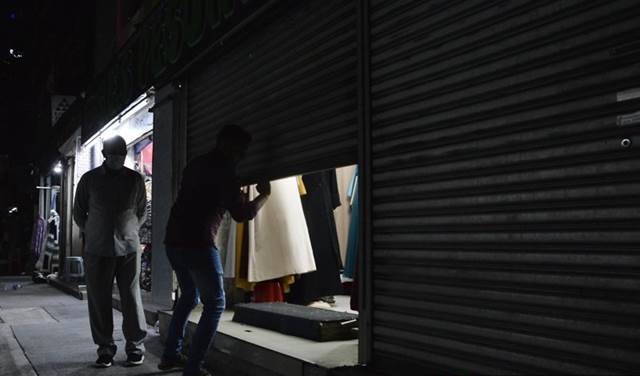
PETALING JAYA: As Malaysia completes a year of battling Covid-19, economists are calling for improvements in policy planning and enforcement and also measures to boost the resilience of small- and medium-sized enterprises (SMEs) against crises.
Speaking to FMT, they noted the huge economic toll that the pandemic had taken on Malaysians and highlighted areas that policy planners could improve on before another health crisis hits.
Firdaos Rosli of Malaysian Rating Corporation Bhd said the pandemic had highlighted problems with policy implementation, adding that there was a mismatch between intent and action, especially in the way movement restrictions were enforced.
He said the government should have communicated its intentions more effectively to the people and he called for decisiveness in instances where changes in policy had to be made.
“All government sectors need to be cohesive in their policy planning, avoid uncertainty and promote business continuity in times of crisis,” Firdaos said, noting that uncertainty in policy direction would erode consumer and business sentiment and result in a costlier and longer economic recovery period.
Movement restrictions and the closure of non-essential businesses led to Malaysia’s gross domestic product contracting by 17.1% in the second quarter of 2020, the lowest since the Asian financial crisis in 1998.
Travel bans and the closure of national borders were huge blows to the country’s tourism sector, while the food and beverage industry as well as the services, transport, recreation and sport industries were also severely affected during the first MCO, with the economy bleeding RM2.4 billion a day.
In terms of retail sales, industry group Retail Group Malaysia said last week that the sector declined 16.3% last year, a record matched only by the Asian financial crisis when retail sales contracted by 20% in 1998.
“I think the biggest lesson that we can learn from the first MCO is how fragile our SMEs are and how far behind they are in terms of digitalisation,” said Adli Amirullah, an economist with the Institute for Democracy and Economic Affairs (IDEAS).
“A crisis will definitely hurt every business. However, good businesses will have strong foundations to stand their ground throughout a crisis despite suffering losses for a few months.
“Unfortunately, there were some businesses that failed once the MCO started because they were too reliant on physical business activity and did not invest in digitalisation earlier.
“That is why one of the things we can learn is to make sure our SMEs are crisis-proof by investing in upskilling and capacity building,” he said.
There are nearly one million SMEs in Malaysia.
The SME Association of Malaysia last May found that 57% of the businesses it surveyed reported zero income during the first MCO and 40% said their revenues had dropped by at least half.
Empathetic approach
Only 19% of the 4,280 respondents from across the country said they would be able to resume operations as usual after the MCO.
Rajah Rasiah, an economics professor at the Asia-Europe Institute of Universiti Malaya, said while the government had done “reasonably well” in addressing the various economic dilemmas brought about by the first MCO, a more empathetic approach in addressing the financial concerns of those in the low-income group would have gone a long way in easing their burdens.
Many in the group work in industries in which the idea of working from home may not apply.
This could be one reason the unemployment rate among low-income urban households increased two-fold in the Klang Valley in September.
Rajah noted a Social Security Organisation statement saying nearly 90,000 job losses were reported as at Oct 22, which was a 278% increase from 2019.
“While much has already been done to help those in the B40 group, the authorities could have been kinder to them,” he said.
“Larger cash distributions for this group should have been undertaken, including ensuring that they did not fall below absolute poverty levels.
“The vulnerable, such as the poor, including migrants, should have been identified early on. The virus does not discriminate against people by citizenship.”
Source: https://www.freemalaysiatoday.com/category/nation/2021/03/18/better-policies-stronger-smes-needed-before-next-pandemic-strikes/

